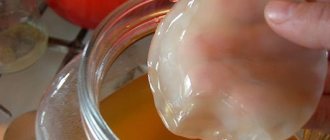What to do if you get the flu?
Regardless of what treatment your doctor has prescribed for you, you should definitely use the following methods of fighting the flu in parallel, which sometimes work better than any medicine. The first answer to the question of what to do if you have the flu is to rest! When you feel signs of illness and it is clear from the symptoms that you have caught either a cold or the flu, you need to reduce all unnecessary activity. This will free up additional energy for your immune system, which at this moment begins to go to war. Let him fight, and you lie down under the blanket.
Drink plenty of hot liquids. This will relieve nasal congestion, prevent dehydration, and reduce inflammation of the irritated linings of the nose and throat. Also, clean your nasal cavity regularly. Simply put, blow your nose instead of sniffing your stuffy nose. However, you need to blow your nose carefully, otherwise you can also get ear pain. The best way is to clear the nostrils one at a time, pinching them alternately.
If there is no high temperature, take a shower saturated with water vapor. The steam will moisturize your nasal cavity and allow you to relax. If you feel dizzy during the flu, turn on a hot shower and wipe yourself with a damp sponge.
Many people, remembering what to do if they get the flu, call the legendary Vietnamese “star”. Apply a small amount of this ointment under your nose to open your airways and reduce irritation of the skin under your nose. Menthol, eucalyptus, camphor - all these ingredients have an analgesic and anti-inflammatory effect.
Gargle. Dissolve a teaspoon of salt in warm water and gargle with the resulting mixture four times a day. To reduce throat irritation, try gargling with an astringent such as tea, which is high in tannins. Or use a thick, viscous rinse made from honey, which is indispensable in folk medicine. Remember, however, that honey should not be given to children under one year of age.
When you sleep, place an extra pillow under your head. The increased angle will help dry out the nasal cavity.
Incubation period
Research by scientists has revealed that the incubation period of influenza lasts from several hours to 3-4 days. Depending on the patient's initial condition, the disease may appear earlier or later. The most vulnerable to infection are the elderly, young children, and pregnant women. In these people, the disease occurs in a particularly acute form. People with chronic heart disease, respiratory tract disease and immunodeficiency are susceptible to the flu. Statistics show that the average incubation period for the influenza virus is 1-2 days. After infection, you can find out about your illness as soon as possible, since the flu manifests itself quickly.
First vague symptoms
How long after infection does the flu appear? You can detect the first signs of infection within a few hours after direct contact with the patient and the pathogen entering your body. But not all people see these symptoms as a progressive disease.
You already know that the virus enters through the nasopharynx and affects the lower respiratory tract. Edema occurs in the trachea and bronchi, and hyperemia appears. The nasal mucosa dries out and a burning sensation is felt. Many people attribute this sensation to exposure to frosty or dry air, without attaching much importance to the symptoms. Those infected are not yet aware of the flu, indeed, because there are no obvious signs of the disease yet. However, during this period the infected person already poses a threat to his environment. He may well infect other people, although he himself does not yet know about the disease.
We also recommend: Incubation period of influenza
Secondary signs of the disease
How long does it take for the flu to appear after the virus enters the body? Obvious symptoms become noticeable after 1-3 days. First, the patient's body temperature rises. With a fever, the thermometer level can reach 41 degrees. However, in many people it is not reduced by conventional antipyretics (Paracetamol and Ibuprofen). The infected person is forced to resort to stronger drugs or use a lytic mixture.
Sneezing is one of the secondary signs
The feeling of dryness in the nasopharynx persists. It is accompanied by severe itching and sneezing. There is a feeling of a lump in the throat, soreness. The patient may complain of pain when swallowing, and appetite decreases. Within 24 hours, body aches, headaches and muscle pain appear. The infected person's eyes become dry, sore, and there is a feeling that sand has been poured into them.
How long does it take for the flu to show up as a cough? This symptom is one of the very last to occur. The cough with such an infection is predominantly dry and tense. The patient cannot cough up mucus, which in some cases causes vomiting. The attacks intensify in the evening and at night, exhausting the already weakened body. From the first days of illness until recovery, the patient has no appetite. Doctors say that in this way the body tries to conserve its strength.
You may not eat, but drinking plenty of fluids is vital for you.
Manifestations of pathology during the recovery period
If the flu is diagnosed, how many days does it take for recovery to occur? Once you get better, all existing symptoms will gradually subside. With proper treatment, recovery begins on average after 5 days. From now on you will feel better. Patients note that pain and chills go away, and the temperature drops to normal values. In this case, an additional symptom appears: weakness. You have probably had this symptom before. But you simply did not notice it because of the strength of other signs.
Possible weakness after illness
The appearance of weakness does not indicate deterioration. Thus, your body is trying to restore its strength, let it do this: rest more, follow the drinking regime. Drowsiness and loss of energy will go away on their own within a few days. The recovery period lasts on average from 3 to 7 days, its duration depends on the strength of your immunity.
What should you not do if you have the flu?
You should not go to work, or undertake any activity in which you will suffer from the flu on your feet. Also, if you have planned a flight, postpone it. Don't put additional stress on your upper respiratory system, which is what a change in air pressure will do to it. Flying on a plane with a cold or flu can damage your eardrums due to pressure changes during takeoff and landing. If you have the flu, you need to do everything you can to support your immune system, which means giving up bad habits, eating plenty of food and excessive physical activity.
It must be remembered that the flu is a serious disease, its course is always unpredictable. Meanwhile, doctors annually warn: even a mild infection can lead to tragic consequences. And if you do nothing at all when dealing with the flu, recklessly letting the disease take its course, then there is a high probability that the symptoms will intensify and this time you will lose the battle with the flu. Don't let this happen!
How to quickly cure the flu at home?
When a seasonal flu epidemic begins, we all try in different ways to avoid getting sick. Unfortunately, this does not always work out. As soon as the first symptoms of the disease appear, every person has only one question on their agenda: “How to quickly cure the flu?”
The patient finds himself between two fires. On the one hand, on TV they talk about miracle pills and powders that can almost instantly get rid of all manifestations of the disease. On the other hand, there are doctors who argue that our body must defeat the flu on its own and there is no way to speed up this process.
Who to believe in such a situation? And what should effective and quick treatment look like?
Is it possible to recover quickly?
If a person falls ill with the flu, then treatment will take from 5 to 7 days. Under no circumstances will it be possible to recover faster. You will find more details in the article “How many days do people get the flu?”
So that this statement does not seem unfounded, let's understand why this is really so.
Flu is a viral infection. This disease is one of the types of ARVI. To date, there are only two medications whose effectiveness against influenza has been officially proven. They are Oseltamivir and Remantadine. Moreover, to the last of them, some strains of the virus have already developed a certain resistance. So it gradually loses its effectiveness.
All other drugs are drugs with unproven effectiveness. What does it mean? Let's give an example. This means that all other influenza antiviral drugs have not undergone the required clinical trials.
In addition, it is necessary to understand that the body will only defeat the influenza virus when it develops specific antibodies against it. This happens exactly 5-7 days after the first symptoms of the disease appear. It is impossible to speed up this process.
How to properly relieve symptoms?
We found out that no matter how much we would like to get rid of the flu quickly, we will not be able to do this. However, this does not mean that there is no need to react to the symptoms of the disease. On the contrary, if they seriously annoy the patient, then reasonable treatment should be applied.
First of all, let's find out what symptoms most often manifest themselves with the flu. So, these include:
- increased body temperature;
- rhinitis and nasal congestion;
- sore throat and cough;
- general intoxication of the body.
The general approach to treatment should be as follows: if the symptoms do not greatly annoy the patient, then there is no need to use any medications.
If the temperature rises above 38.5-39 degrees, an antipyretic should be given. You should use drugs based on paracetamol and ibuprofen. And exactly in this sequence. If your body temperature does not drop half an hour after taking the medicine, call an ambulance.
When a patient is very bothered by a stuffy nose and runny nose, rinsing the nasal cavity with saline will help get rid of them. If this is not enough, then use vasoconstrictor nasal sprays or drops. They must be used in strict accordance with the instructions. There are contraindications and side effects.
To solve problems associated with intoxication and cough, drink a lot. The patient should drink 3 liters of warm liquid daily. You can drink tea, compotes, fruit drinks and just warm water.
The main thing is to ensure that the mucus in the patient’s nasopharynx does not dry out. It is this factor that leads to complications in most cases of influenza. If your throat is very bothersome, use cough lozenges or lozenges.
In this case, follow the instructions for use.
In addition to drinking plenty of fluids, an indispensable condition for the proper treatment of any ARVI is fresh and cool air in the apartment. It is necessary to regularly ventilate the room and wash the floors. Additionally, read the article “Cheap medications for the flu.”
What not to do?
The methods people tend to use in their attempts to quickly defeat the flu range from useless to downright dangerous. Remember what not to do.
- Flu is a viral infection. Attempts at treatment with antibiotics are not only futile, but also dangerous. Antibiotics should only be used for any disease if prescribed by a doctor.
- Do not force the patient to eat. The popular belief that fighting a disease requires strength does not work in this case. Moreover, it can cause harm. If you want to eat, then you should give something carbohydrate, light or liquid.
- Don't use "grandmother's" remedies. Mustard plasters, rubbing with vinegar, cupping and steaming your feet in hot water can only do harm.
- Cough with influenza does not require the use of expectorants or antitussives. Their improper use can contribute to the occurrence of bronchitis or pneumonia.
Source: https://OrviStop.ru/gripp/kak-bystro-vylechitsya.html










